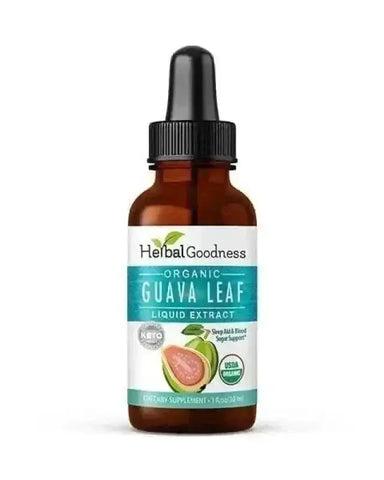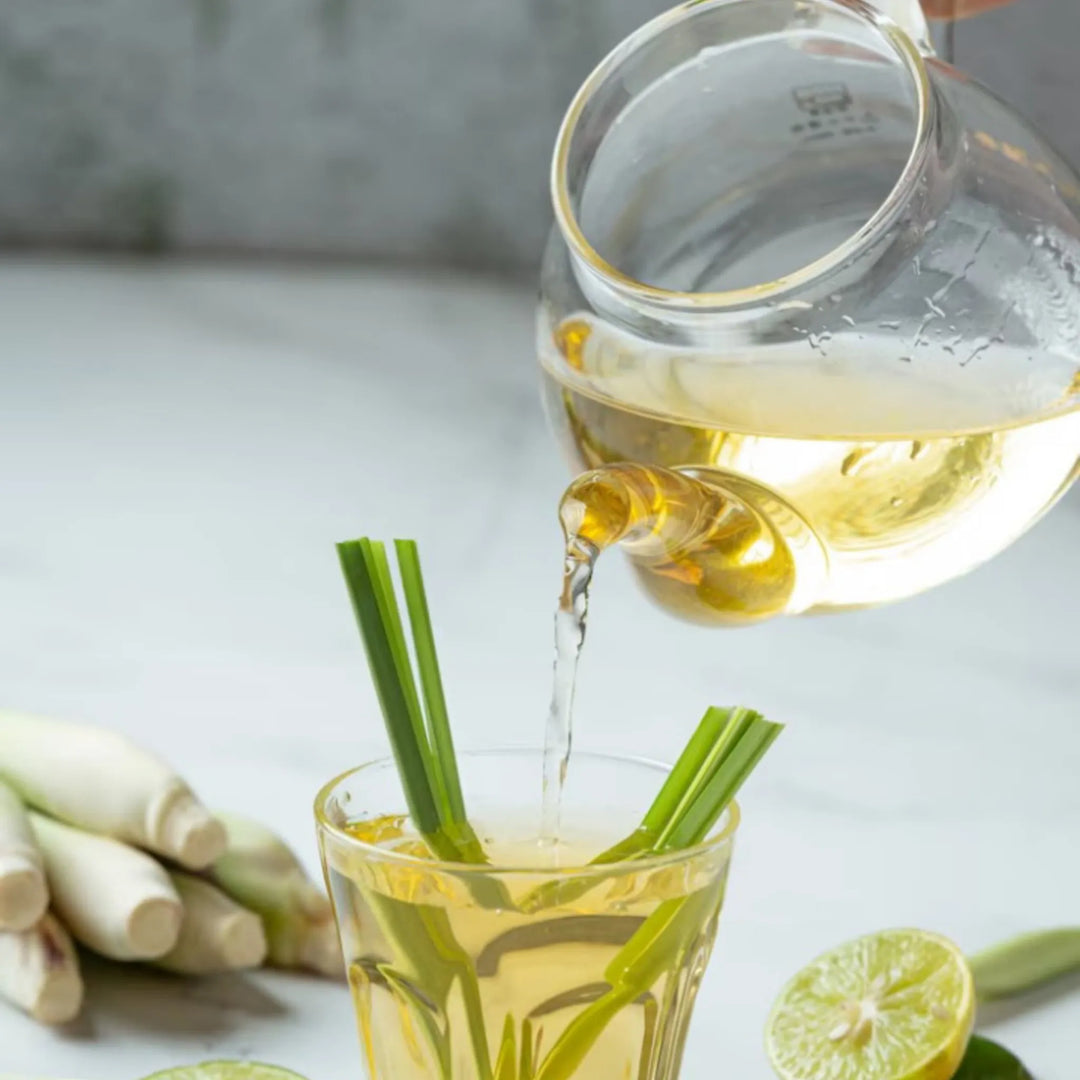Guava Leaf: Nature’s Multi-Use Remedy You Need to Know
If you’ve ever wondered about the power hidden in everyday leave, guava leaf might surprise you. Rich in bioactive compounds, guava leaf offers a spectrum of possible benefits that make it more than just leftover foliage. In this post, we’ll explore what is guava leaf good for, dive into guava leaf tea benefits, guava leaf extract, guava leaf oil and guava leaf powder, share tips on how to make guava leaf tea, and cover possible guava leaf tea side effects. Whether you’re curious or ready to try, this is your go-to guide to guava leaf, with science, clarity, and trust.
What Is Guava Leaf? (and Why It Matters)
Guava leaf comes from the tree Psidium guajava, the same species that produces the familiar tropical fruit. People have long used guava leaf in traditional medicine systems across Asia, Africa, and Latin America. Modern science is beginning to catch up: guava leaf extract contains phenolic compounds (like quercetin, gallic acid, kaempferol), tannins, flavonoids, and terpenoids.
Guava leaf is now available as guava leaf extract capsules, liquid extract, powder, tea, and even guava leaf oil for topical applications.
Key Benefits of Guava Leaf & Guava Leaf Extract
1. Digestive and Gut Support
Guava leaf tea has long been valued in traditional use for general digestive comfort. The leaves are often used in different ways to support overall wellness.
2. General Wellness Support
Guava leaf extract is commonly included in teas and natural formulations for everyday balance and vitality.
3. Natural Cleansing Properties
Guava leaves are known for their refreshing and cleansing qualities and are often used in herbal preparations and skincare products.
4. Soothing and Restorative Qualities
The leaf is appreciated in traditional use for its calming and restorative nature, making it a popular ingredient in wellness blends.
5. Botanical Richness
Guava leaves contain natural plant compounds and antioxidants that contribute to their overall botanical value.
6. Traditional Use for Women’s Wellness
Guava leaf tea has also been traditionally enjoyed for women’s comfort and general well-being.
How to Use Guava Leaf: Tea, Extract, Oil & Powder
Making Guava Leaf Tea (How to Make Guava Leaf Tea)
One of the simplest ways to use guava leaf is as tea. Here’s a basic method:
- Take 4–6 fresh or dried guava leaves, wash well.
- Boil in 2 cups of water for 5–10 minutes.
- Let steep (off heat) for 5 minutes, then strain.
- Optionally, add honey, lemon, or cinnamon.
You can drink guava leaf tea once or twice daily, either hot or cooled. Because of its mild flavor, many people enjoy it plain or blended with herbal teas like green tea.
Guava Leaf Powder & Tea Bags
If fresh leaves aren’t accessible, guava leaf powder (finely ground dried leaves) offers versatility. You can brew a teaspoon of powder in hot water or mix it into smoothies. Powder is also convenient for encapsulation.
Alternatively, guava leaf tea bags provide a convenient format, with standardized proportions. For best results, steep an entire bag as directed for 5–8 minutes.
Guava Leaf Extract Capsules & Liquid
For users wanting a concentrated format, guava leaf extract capsules or liquid concentrate deliver a more potent dose of bioactives. Make sure the product is from a reputable source with third-party testing for purity, contaminants, and consistent potency.
Guava Leaf Oil & Topical Uses
Guava leaf oil is derived via steam or solvent extraction of leaf constituents. It is often studied for antioxidant and topical benefits. Some users incorporate such oil into skincare or hair care routines, but always patch test and dilute properly before application.
Precautions & Possible Side Effects (Guava Leaf Side Effects)
While many people tolerate guava leaf tea and extracts well, prudence is necessary. Here are cautions to consider:
-
Allergic responses: Rarely, topical or internal use could cause allergic reactions, watch for rashes, or itching.
-
Pregnancy, breastfeeding, or health conditions: Safety data is limited, so consult a healthcare provider before use.
-
Quality concerns: Some commercial products may be contaminated with heavy metals, pesticides, or adulterants. Always choose trusted brands.
When brewing guava leaf tea, start with milder doses and monitor how you feel. Discontinue use if adverse symptoms arise.
Best Practices in Choosing Guava Leaf Products
-
Sourcing & cultivation method: Opt for leaves cultivated without heavy agrochemical use. Organic or sustainably wild-harvested sources may offer purer yield.
-
Standardization & testing: A trustworthy brand provides batch analysis, certificate of analysis (COA), and third-party lab testing for contaminants and bioactive content.
-
Form & bioavailability: Some leaves appear in forms such as spray-dried extract, hydroethanolic extract, or oil. Each has different extraction efficiencies and bioactive retention.
-
Freshness & packaging: For powders, tea, or leaves, airtight, light-blocking packaging (like dark jars or foil sachets) helps preserve potency.
-
Reputation & reviews: Brands with transparent sourcing, scientific backing, and strong customer feedback inspire more confidence.
Herbal Goodness’ Guava Leaf Extract – Organic Liquid follows these good practices, offering a stable, pure, lab-verified formula intended to help you experience the benefits safely.
Guava Leaf Tea FAQs
Q1: What are the benefits of guava leaf tea?
It’s enjoyed for its refreshing taste and traditional use as a natural, caffeine-free herbal drink.
Q2: What is guava leaf tea good for?
People often drink it for relaxation or as part of a daily wellness routine.
Q3: How do you make guava leaf tea?
Boil 4–6 clean guava leaves in 2 cups of water for 5–10 minutes, steep briefly, then strain.
Q4: Can men drink guava leaf tea?
Yes, it’s suitable for anyone looking for a natural, soothing beverage.
Q5: Are there any side effects?
It’s generally well tolerated in moderation. Stop use if any discomfort occurs.
Q6: Is guava leaf tea safe for everyone?
Yes, though pregnant or medicated individuals should consult a doctor first.
Q7: Can guava leaf oil be used for hair care?
Some use it in DIY hair blends. Always patch test before applying to the scalp.
Q8: Where can I buy guava leaf tea?
Available in supermarkets, health shops, and online platforms like Amazon.
Experience Restful Wellness with Guava Leaf
If you’re ready to experience nature’s power in a safe, convenient form, try Herbal Goodness’ Guava Leaf Extract – Organic Liquid, a carefully sourced, lab-tested formula designed to deliver the benefits of guava leaf reliably.
Want to go deeper? Download our FREE eBook: “Need More Sleep? Improve Your Sleeping Pattern with Guava Leaf” and learn how gentle herbal routines can support rest and relaxation.
Take the next step: click here to view the Guava Leaf Extract – Organic Liquid and download your free eBook. Make guava leaf a trusted ally in your wellness journey.
Author Name:
Ilomuanya Mmesoma Davina
Author Bio:
Ilomuanya Mmesoma Davina is a Content Writer at Herbal Goodness, where she focuses on creating and optimizing blogs. With expertise in natural health products and SEO-driven storytelling, she is passionate about educating readers on the power of herbs and superfoods for modern wellness.
Related:
References:
-
“Guava (Psidium guajava L.) Leaves: Nutritional Composition & Bioactivity” in PMC
-
“Health Effects of Psidium guajava L. Leaves: An Overview” in PMC













